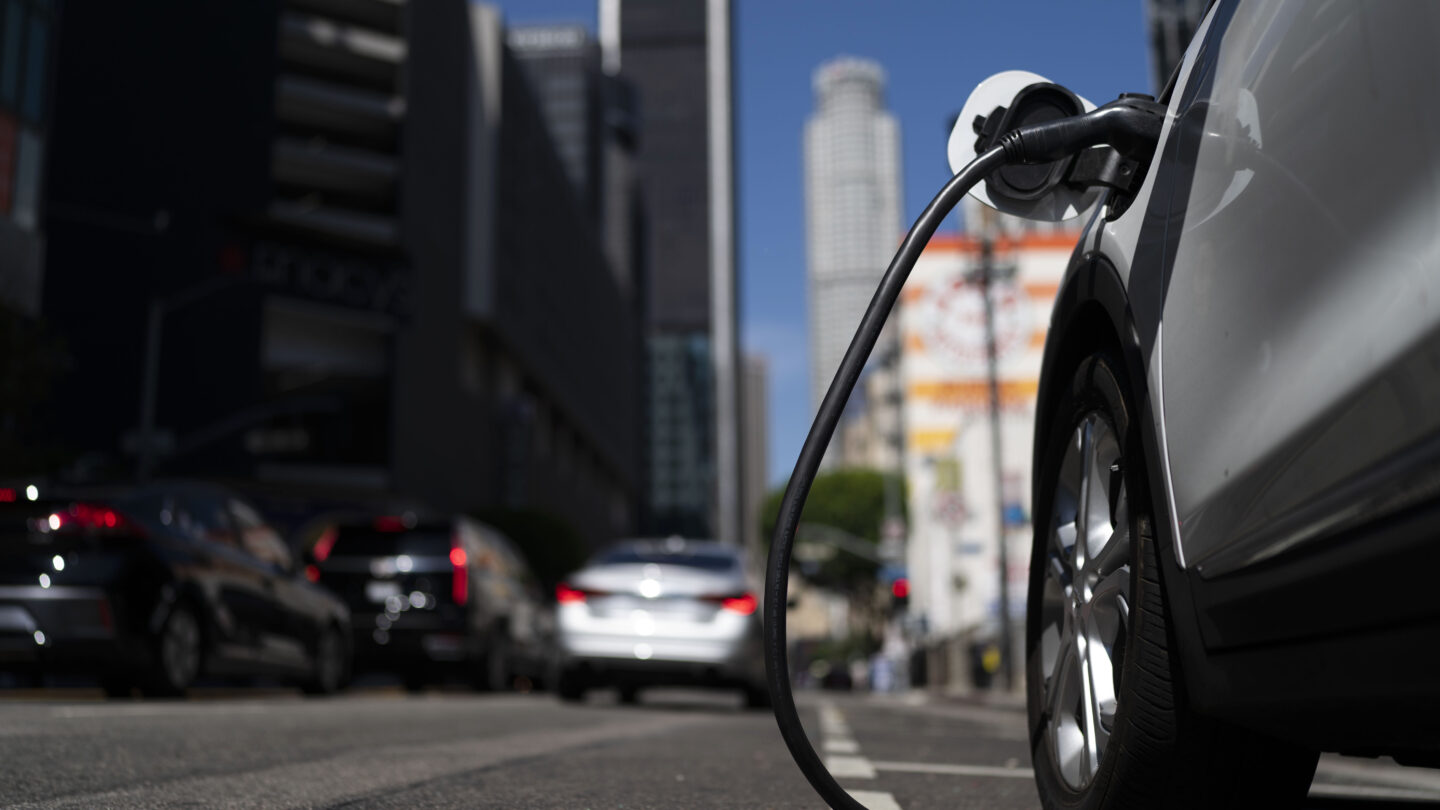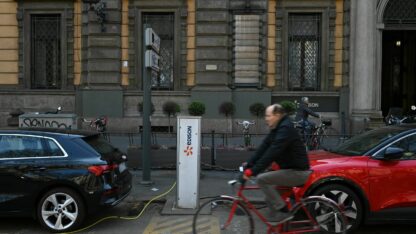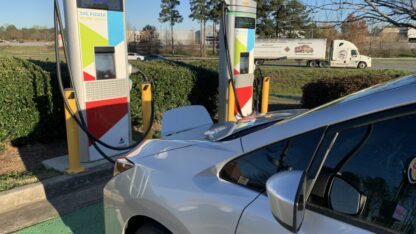This coverage is made possible through a partnership with WABE and Grist, a nonprofit, independent media organization dedicated to telling stories of climate solutions and a just future.
A bill that would overhaul electric vehicle charging in Georgia is headed to Gov. Brian Kemp for his signature. It passed the state legislature Monday.
The legislation changes how EV drivers pay to charge at public charging stations. Currently, drivers pay by the amount of time they’re plugged into the charger. Under Senate Bill 146, they would instead pay by the amount of electricity they use – similar to how gas pumps charge by the gallon.
“This is a more equitable way of doing that and ensuring that we’re not overpaying for that cost of that electricity,” Anne Blair of the Electrification Coalition told WABE last month.
The switch is also required for chargers funded by the federal Bipartisan Infrastructure Law.
The legislation also allows convenience stores to set up EV chargers – something that the industry has been clamoring for as car manufacturers increasingly shift toward making electric rather than internal combustion vehicles.
It also includes a more controversial provision: an excise tax on EV charging, similar to the excise tax levied on gasoline. That tax funds the Georgia Department of Transportation and is seen as essential to pay for maintaining the state’s roads.
But EV owners in Georgia already pay a $216 annual fee specifically designed to replace the lost gas tax revenue.
“Further taxing EV drivers is punitive,” Blair said.
The tax also creates a challenge for businesses that currently offer free EV charging. They would have to begin metering their charges, and to be able to offer the free charge would have to pay the tax themselves.
During hearings, the bill’s backers said both charges are necessary because the excise tax only applies at public charging stations, not to home charging. That means EV drivers who charge mostly at home wouldn’t pay proportionally to their road use.
“We believe everyone using the public roads should be paying some fair share to get on that roadway,” said Senate Majority Leader Steve Gooch in a hearing last week.
GDOT is involved in a pilot project to study basing a fee on how many miles an EV drives, rather than imposing a flat annual fee. Gooch said that’s one option the legislature could consider in the future.
Lawmakers did lower the tax to 2.84 cents per kilowatt-hour. Advocates pushed for the change, arguing that the rate originally proposed, 3.47 cents, would have been the highest in the country.
If Kemp signs the bill, the excise tax for EV charging will go into effect in 2025.
Environmental groups see the EV charging bill mostly as a win because they hope expanding and standardizing charging will encourage more people to drive EVs instead of internal combustion vehicles that contribute to climate change.
Other environmental bills failed to gain traction during the legislative session.
A proposal to ban mining near the Okefenokee National Wildlife Refuge garnered more than 90 sponsors but only received a subcommittee hearing with no vote. Its sponsor, Republican Darlene Taylor, said she hopes it will advance next year. Taylor’s resolution to study the Okefenokee mining issue was withdrawn.
A rooftop solar energy bill also failed to pass. It would have required installers to be licensed by the Public Service Commission – something the rooftop solar industry opposed because it views the PSC as hostile to rooftop solar. The Commission has backed large-scale solar farms but recently failed to expand a program that can make rooftop solar more affordable.
Bills to regulate soil amendments and to create a state environmental justice commission also did not advance.









